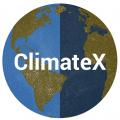Description
In this video, MBA student Jennifer Ballen discusses her move from Wall Street to MIT and her role as a climate leader.
Jennifer explains how Before It’s Too Late, the company she co-founded, uses multi-participant virtual reality simulations to help people empathize with the climate change problem.
Transcriptions
[00:00:01:04] I'm a second year MBA student at Sloan. I'm originally from Boston, Massachusetts. I went to Lehigh University for undergrad and worked in finance, which is where I first became interested in sustainability work at Morgan Stanley in investment management. I became very interested in this idea of impact investing and investors and consumers that were caring about things in addition to profitability.
[00:00:21:16] I also went to Brazil as part of the Climate Reality Leadership Corps with Al Gore and became trained as a climate leader. And as a climate leader, the mandate is to provide climate awareness-raising presentations, and so I became very interested in the communication aspect of sustainability and how do you speak to people who might not necessarily agree with your beliefs.
[00:00:40:28] It was a pleasant surprise coming to MIT from Wall Street, which was a different community of people that maybe climate change wasn't the first thing on their minds. And I'd been so grateful to be at a place where climate change is actually a focus and there's scientists here and professors here and students here that have spent years studying climate change.
[00:01:04:11] I ended up sitting in on the Sustainability Initiative class, the S-Lab, and I was just entranced by the professors and the learnings, and the more and more people I met, I felt a very strong connection to the culture, especially the sustainability folk at the school. It's been a tremendous fit for me and-- yeah, definitely influenced the way I think about the world, allowed me to increase my perspective, work with people that are passionate about similar things.
[00:01:35:17] I am one of three co-founders of a nonprofit initiative called Before It's Too Late. We are a virtual reality exposition for climate change story solutions and simulations. We're partnered with multiple groups at MIT, like the Center for Collective Intelligence, the Media Lab, the System Dynamics Group; and on our core team are actually classmates that are in the virtual reality world.
[00:01:57:09] While there's many climate change solutions out there-- and they're great-- the problem still feels far away and there's a lack of urgency and accountability. It's actually our whole concept is based on research that was done at MIT that shows that the link between affect and intend to act is much stronger than the link between pure knowledge and intent to act, and we feel that there is an empathy gap in the climate change narrative.
[00:02:20:13] We're piloting in southern Florida. We've already been down there, met with all the different stakeholder groups. We met with Mayor Jim Cason from Coral Gables, we met with the City of Miami, Miami-Dade County, Broward County, Miami Beach, and the South Florida Compact; and we're really excited to partner with them because of two reasons-- one, we think the sea level problem is imminent and there's a real story to be told there-- that can be shown in the virtual reality; and two, the stakeholder group there is already collaborating together, so it's an easier process to work with people that want to mitigate climate change.
[00:02:57:02] The first phase is content that's produced by us, United States-focused-- Southern Florida will be the first, but we hope to go to California and look at deforestation and we hope to highlight different climate change issues around the nation.
[00:03:12:06] Phase two is almost like a curated YouTube for a climate change virtual reality content, where it's a dynamic crowdsourced tool so that people can share their stories around-- hopefully the world-- at some point as well as view what's going on and really just increase awareness and encourage action.
[00:03:31:09] We've always come up against this gap in clementines advocacy that it's purely educational and less emotional, and we believe in the virtual reality to really pull up that emotional piece and that that's the missing link in actually encouraging action to climate change. And that once people are mostly affected from here, they will be more encouraged to act.
[00:03:55:15] I don't think there's any one thing that will save the world, if you will. But our project is part of the solution in both changing mindsets and implementing policies that helped mitigate carbon emissions. I personally believe a carbon tax is necessary. I think that companies and individuals and government organizations need to be responsible for the negative externalities they're putting forth on the planet.
[00:04:18:02] I think there's a lot of fear. I think there's the potential for certain policies to be enacted from the government that halt climate change progress, but I think that-- and I hope sincerely-- that people that are advocates for climate change continue to push ahead, because I actually think while there may be challenges ahead, there is a tremendous opportunity.






